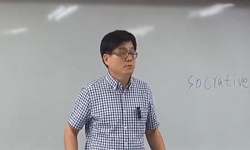The purpose of this study was to evaluate the academic productivity of The Journal of Korean Education (JKE) and to suggest the tasks that lie before it in the future. To begin with, the characteristics of this journal, including objectives and proces...
http://chineseinput.net/에서 pinyin(병음)방식으로 중국어를 변환할 수 있습니다.
변환된 중국어를 복사하여 사용하시면 됩니다.
- 中文 을 입력하시려면 zhongwen을 입력하시고 space를누르시면됩니다.
- 北京 을 입력하시려면 beijing을 입력하시고 space를 누르시면 됩니다.

학술지 「한국교육」 에 대한 평가와 과제 = An Evaluation of The Journal of Korean Education and its Future Tasks
한글로보기https://www.riss.kr/link?id=A101693453
- 저자
- 발행기관
- 학술지명
- 권호사항
-
발행연도
2013
-
작성언어
Korean
- 주제어
-
KDC
370
-
등재정보
KCI등재
-
자료형태
학술저널
- 발행기관 URL
-
수록면
239-270(32쪽)
- DOI식별코드
- 제공처
-
0
상세조회 -
0
다운로드
부가정보
다국어 초록 (Multilingual Abstract)
The purpose of this study was to evaluate the academic productivity of The Journal of Korean Education (JKE) and to suggest the tasks that lie before it in the future. To begin with, the characteristics of this journal, including objectives and processes, were reviewed briefly. The JKE has three official objectives: 1) to contribute to the development of Korean education, 2) to accelerate the advance and exchange of knowledge and information related to education policy, and 3) to establish an intellectual foundation to contribute to Korean education policies. The strengths and the weaknesses of this journal were examined with a focus on the procedures of submission, acceptance, publication, and quality control. A comparative analysis was conducted with the journals that shared certain characteristics with the JKE: journals published by governmental educational research institutes such as the Korea Institute for Curriculum and Evaluation and the Korea Research Institute for Vocational Education and Training, and a journal that covered comprehensive issues of education, published by Korea Educational Research Association. A survey was conducted for the purpose of an in-depth analysis of the JKE. Targeted populations were the contributors to the JKE and members of the editorial boards of the JKE; one hundred and fifty-two participants responded to the survey. In addition to the survey data, comments were collected from former editorial board members. Through these processes, the current status of the JKE and expectations for it were identified. Suggestions for future directions and tasks for the improvement of the JKE focused on three goals: 1) to ensure the journal’s status as a main educational journal; 2) to fulfill its role as an institutional journal of KEDI, a primary governmental educational policy research organization; and 3) to function as a mediator between scholars, researchers, schools, and other figures in education in Korea.
국문 초록 (Abstract)
이 논문은 학술지 「한국교육」(제1호(1974)∼제40호(2013))에 대하여 그 학술적 성과를 평가하고, 개선하여야 할 과제를 모색하고자 시도된 연구이다. 먼저 이 학술지의 발간 배...
이 논문은 학술지 「한국교육」(제1호(1974)∼제40호(2013))에 대하여 그 학술적 성과를 평가하고, 개선하여야 할 과제를 모색하고자 시도된 연구이다. 먼저 이 학술지의 발간 배경과 과정을 개관하였고 그 성격을 진단하였다. 우선 이 학술지의 발간 규정에서 표방하고 있는 세 목적(1. 한국교육의 발전에 기여 2. 교육정책 관련 지식과 정보의 발전 및 교류 촉진 3. 한국교육정책 개발에 기여할 지적 기반의 확보)에 비추어 그 달성 성과를 논의하였다. 이어 이 학술지의 편집 및 발간에 있어서 특징과 관련된 문제점을 분석하였다. 끝으로 국책연구기관 학술지로서 특징을 한국교육과정평가원 및 한국직업능력개발원 학술지와의 비교 통해 논의하였으며, 종합학술지로서의 성격에 대하여 한국교육학회와의 비교를 통해 논의했다. 보다 구체적인 학술지의 문제점 진단을 위하여 학술지의 주요 수요자이자 관계자였던 최근 6년 동안의 투고자를 대상으로 설문조사(회수 152건)를 실시하였고, 한국교육개발원 내외의 전임 편집위원을 대상으로 검토의견을 수렴하였다. 이를 통해 『한국교육』에 대한 이해도 및 기대수준, 문제인식, 개선방안의 경향을 파악할 수 있었다. 결론으로서 향후 학술지 『한국교육』의 과제를 제시하였다. 개선 과제는 첫째로는 교육학 정론지로서 위상 확립 측면에서, 둘째로는 국가 교육정책연구 주무기관인 한국교육개발원 기관 학술지로서 역할 측면에서, 그리고 마지막으로는 학자․연구자․교육현장 간의 교류 및 국제교류의 매개체로서의 기능 측면에서 제안하였다.
동일학술지(권/호) 다른 논문
-
- 한국교육개발원
- 손재환
- 2013
- KCI등재
-
- 한국교육개발원
- 김소현
- 2013
- KCI등재
-
- 한국교육개발원
- 전재은
- 2013
- KCI등재
-
한국의 정부주도형 교육체제의 비판과 새로운 지향점에 관한 철학적 논의
- 한국교육개발원
- 이성호
- 2013
- KCI등재




 RISS
RISS






